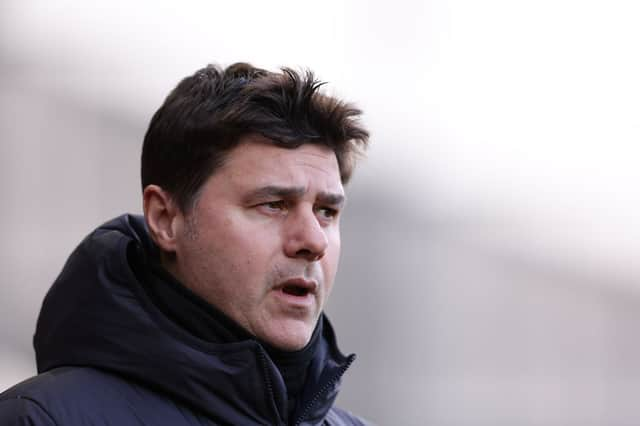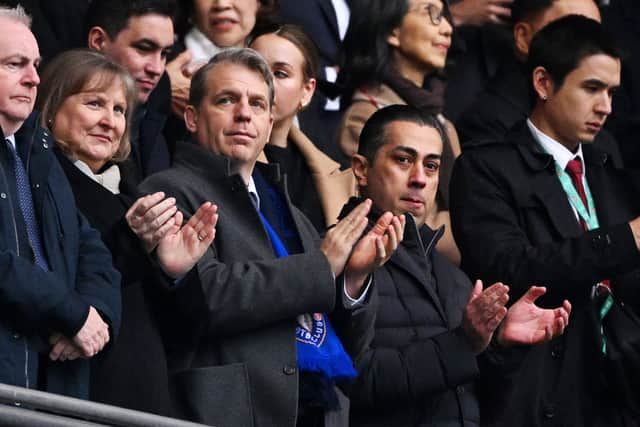Why Chelsea can not afford to sack Mauricio Pochettino at this point


In every business institution, there comes a time when fantasy gives way to reality and the reality for Chelsea at the moment is that the club is underachieving. The irony, though, is that it's the direction of travel that has made Mauricio Pochettino’s job safer with every setback.
Chelsea board would have seen the points deductions that clubs have suffered recently and the threat of relegation hovering around others who are being investigated for not complying with Premier League sustainability rules.
Advertisement
Hide AdAdvertisement
Hide AdThe 2021 Champions League winners have boxed themselves into a corner so much that it makes more sense financially to keep an underperforming manager than to sack him.
How Chelsea they got here
In plain terms, Chelsea would be playing with fire if they were to sack Mauricio Pochettino and get a new manager. There is little room to manoeuvre on the balance sheet due to mistakes made in the past, and the owners know that.
Chelsea are the biggest spending team in the world at the moment. Last month, they reported a £90.1m loss for the 12 months ending on June 30 2023 - this in the context of the limit of £105m in losses that the Premier League sustainability rules allow over three years. Given how close they are to the limit, they cannot afford another mistake.
In the past, a manager who has suffered 10 league defeats, conceded more than 50 league goals and struggled to get into the top six of the league table would have been fighting for his job. But the club’s performance on and off the field have just come together to ensure the manager has never been under real pressure.
Advertisement
Hide AdAdvertisement
Hide AdSources told LondonWorld that Pochettino is safe despite the disappointing 2-2 draw at Bramall Lane. It is understood the owners believe in the potential of the team and they are confident that the manager will achieve the season target of qualifying for Europe, even if it is just the Conference League.
In the summer, both the manager and club will then have a proper look back at the season and decide the way forward. At that point, Pochettino who signed a two-year deal would have one year left on his contract.


How the mistakes were made
First Chelsea had to pay around £22m to Brighton to sign Graham Potter - and he didn't last 10 months - so they had to pay compensation to get rid of him. If you add the compensation they paid to that of Thomas Tuchel, the club had to pay almost £25m to rip it up and start again.
They would have to pay Pochettino another heavy compensation of around £10m if they were to sack him now, but that is not even the main problem. The main challenge would be that whoever was appointed would be on a heavy salary, close to that of Pochettino, and would want the club to sign new players. Every manager would want to be backed. In modern football, you cannot just sign a manager and not give him the tools that fit his skill.
Advertisement
Hide AdAdvertisement
Hide AdWe are talking another £100m, minimum, to spend on at least three new players. That is just not possible at this stage of the project. Add that to the £1 billion the club spent on players in the last two transfer windows and they would be in a mess. This is why Pochettino’s job is safe.
Optimism and hope
Chelsea are still in the semi-final of the FA Cup and would be rewarded with a Europa League place if they can defy the odds and win the competition.
There is also still the league route, albeit that is diminishing with every draw or defeat. But they could start to make gains if big investments like Moises Caicedo and Enzo Fernandez were to find their best form and help the team to a strong finish.
The financial lift they would get from playing in Europe and from gate proceeds would make a huge difference to the project. It would also allow the board to think carefully about selling homegrown players as they look to navigate muddy waters.
Comment Guidelines
National World encourages reader discussion on our stories. User feedback, insights and back-and-forth exchanges add a rich layer of context to reporting. Please review our Community Guidelines before commenting.
